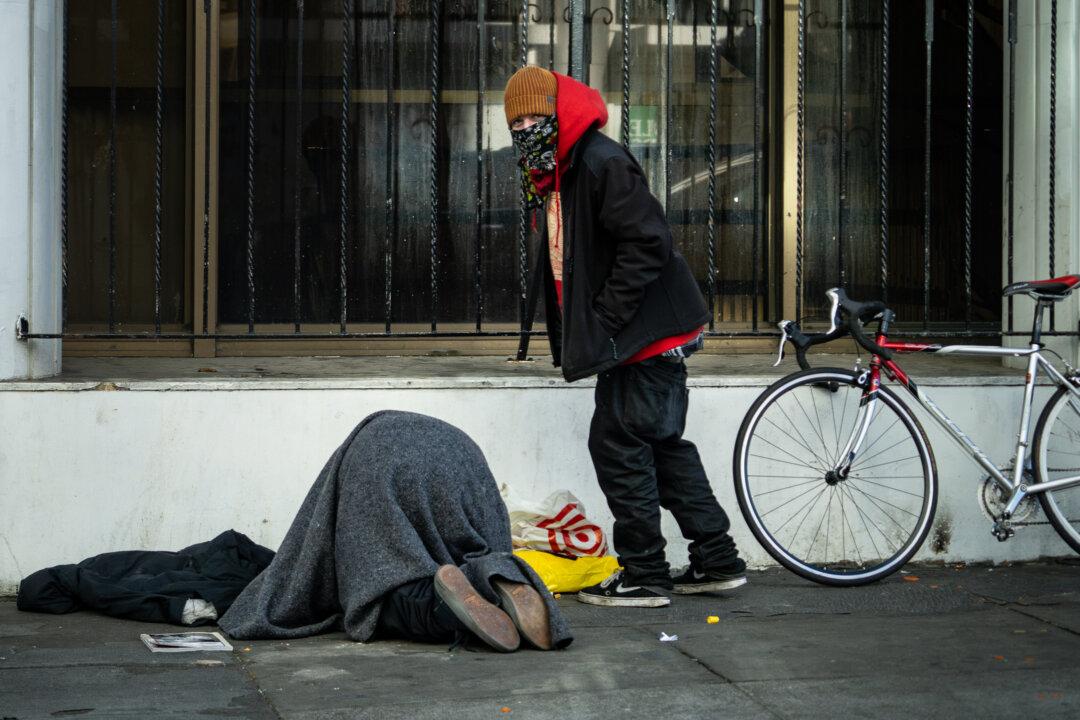Residents and businesses in San Francisco’s Tenderloin neighborhood have filed a lawsuit against the city, accusing officials of running a covert policy of corraling illegal drug dealing and use to their neighborhood and allowing homeless tent encampments to crowd sidewalks.
In a complaint filed on March 14 at the U.S. District Court, Northern District of California, San Francisco Division, four individual plaintiffs said they fear for the safety of their families, and three businesses said the conditions on sidewalks scare away customers.





